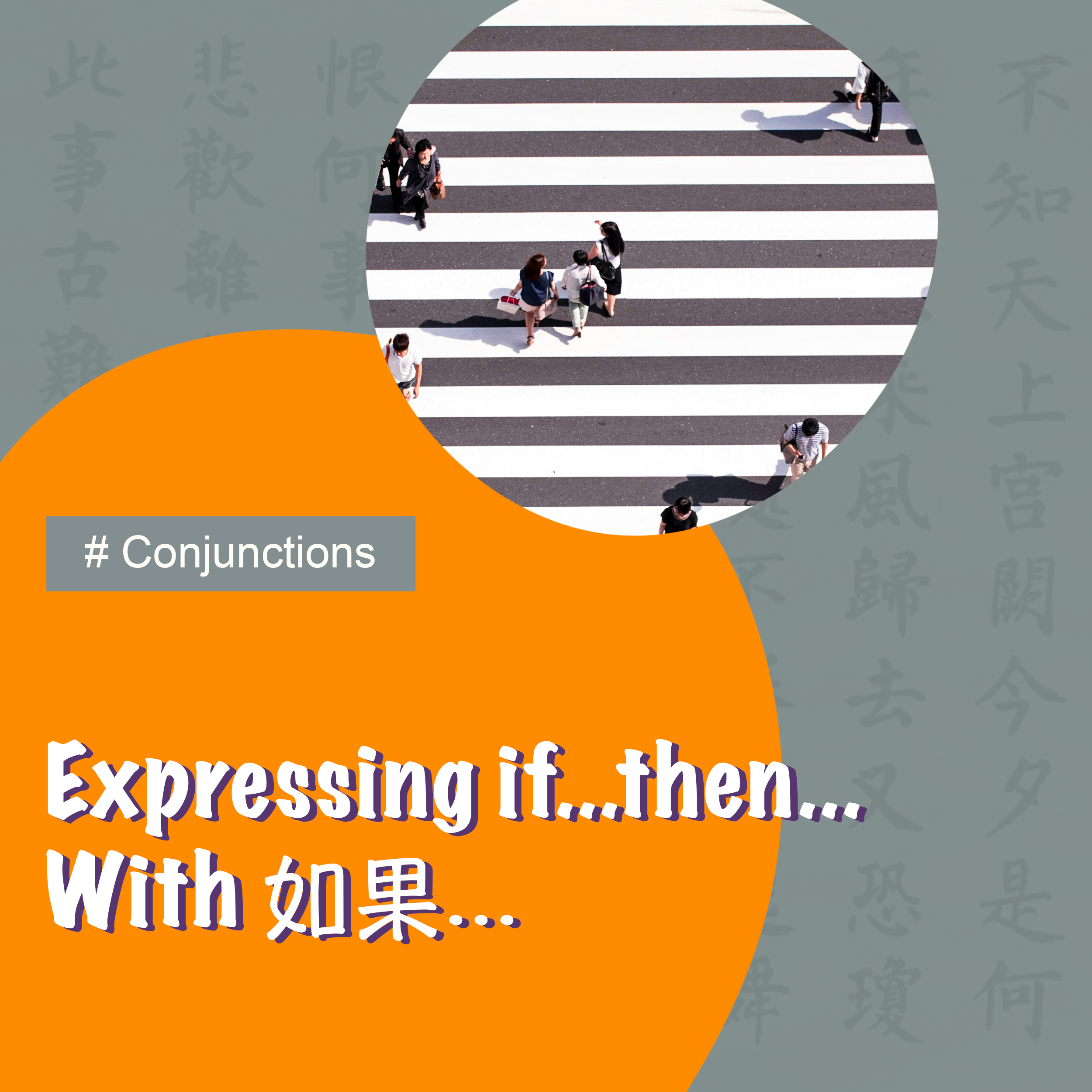Expressing if...then... With 如果...
This structure is a walk in the park! Why? Because it's the exact same as English! This super useful, super simple structure will unlock conditional phrases for us! COOL!
We can use 如果rúguǒ to express if. 那nà is optional. Now, there are three main uses of the structure in Mandarin, these are as follows:
如果 Phrase 1,(那) Phrase 2
If Phrase 1,(then) Phrase 2
Used as a question: "If this happens, will that happen?"
Rúguǒ nǐ de zhōngguó péngyǒu qǐng nǐ chīfàn, nǐ yǐhòu yě huì qǐng tā chīfàn ma? ——>
If your Chinese friend treats you (to a meal), (then) will also you treat her/him in the future?
如果你的中国朋友请你吃饭, (那)你以后也会请他吃饭吗?
Demonstrate obligation & intent: "If you do this, then you can/should do that."
Rúguǒ nǐ xiǎng qù zhōngguó gōngzuò, nǐ yīnggāi měitiān dōu xué zhōngwén! ——>
If you want to work in China, (then) you should study Chinese everyday!
如果你想去中国工作, (那)你应该每天都学中文!
Show Cause & Effect: "If this happens, then that will happen."
Rúguǒ nǐ měitiān dōu hé zhōngguó péngyǒu shuō zhōngwén, nǐ huì shuō zhōngwén shuō de hěn hǎo. ——>
If you speak Chinese with the Chinese friend everyday, (then) you will speak Chinese well.
如果你每天都和中国朋友说中文, (那)你会说中文说得很好.
In a hypothesis statement, we should use the structure below. The clause following 如果rúguǒ is a hypothesis, and the clause after 就jiù is the result based on the hypothesis. Note that the subject of the second clause should be put right before 就jiù.
|
如果 Phrase 1,(Subj.) 就 Phrase 2 If Phrase 1,then Phrase 2 |
| rúguǒ nǐ zhīdào,jiù gàosù wǒ. —— If you know, then tell me. 如果你知道,就告诉我。 |
| rúguǒ nǐ xiǎng chī zhège dàngāo,jiù chī ba!——> If you want to eat this cake, then eat it. 如果你想吃这个蛋糕,就吃吧! |
|
rúguǒ méiyǒu qián,wǒmen jiù bùnéng qù zhōngguó. ——>If (we) don't have money, then we won't be able to go to China. |
|
rúguǒ míngtiān xiàyǔ,wǒmen jiù dāi zài jiālǐ kàn diànyǐng. —— If it will rain tomorrow,then we will stay at home and watch movies. |
| rúguǒ (nǐ)bù xiǎng qù,wǒmen jiù bùqù. ——> If (you) don't want to go, then we don't go. 如果(你)不想去,我们就不去。 |
|
Note1: In the last sentence, there are two subjects. The first subject is 你nǐ,and the most time 你nǐ can be omitted. Note2: We don't use this structure in questions for the most part. |
|
Note3:Difference between 那nà /那么nàme and 就jiù
|
We listed everything out as clearly as possible so you can feel clear on how you might want to use this structure. =)


